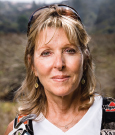I've lived my adult life by three guiding principles I learned as an adventure racer: to set goals, to determine how to achieve them, and to persevere in the face of adversity. Those standards helped me complete more than 70 marathons and 7 Ironman competitions, and they helped me conquer breast cancer twice.
The first time was 17 years ago, when I was just 44 and found a lump in my left breast. The diagnosis was HER2-positive ductal carcinoma in situ. Because I had early-stage disease and my oncologist was aware of my athleticism and my desire to preserve as much of my upper body muscle mass as possible, he recommended a partial mastectomy (rather than a total mastectomy) and an aggressive course of trastuzumab (Herceptin) plus carboplatin and docetaxel, followed by 6 weeks of daily radiation therapy.
Because trastuzumab was so new in the clinic—the U.S. Food and Drug Administration had approved the drug just a few weeks after my diagnosis—my oncologist wasn’t sure how effective the treatment would be for me. But 2 years later, there were no signs of cancer in my body, and for the next 15 years, I was able to continue with my active lifestyle and my teaching career uninterrupted.
Then, in 2014, I was diagnosed with a second breast cancer in the same breast. This time it was triple-negative disease, and after consulting with my medical team, I decided to have a contralateral prophylactic mastectomy. After the surgery, I had several more rounds of combination carboplatin and docetaxel chemotherapy. Today, I am once again running marathons and working out daily, although not at the level I was able to achieve before this second cancer.
Making a Contribution to Research
As someone who has never been on the sidelines of life, having cancer has only reinforced my desire to live each day as fully as possible. I’m determined to do everything I want to do, and if cancer eventually takes my life, I’ll know that I left nothing undone and will have no regrets.
Cancer has also given me the desire to give back. I’ve been so fortunate to have an oncology team that not only took great care of my medical needs, but gave me a sense of connection as well, and I’m hoping I can do the same for other women diagnosed with breast cancer.
Earlier in 2015, I joined the “Share the Journey: Mind, Body, and Wellness” clinical study (sharethejourneyapp.org [see article in The ASCO Post, September 10]), which is investigating the symptoms many women experience after breast cancer treatment, why these symptoms vary over time, and what can be done to improve them. It is my great wish that my contribution to this important study will help improve the lives of all breast cancer survivors.
Soon after I joined Share the Journey, two of my friends were diagnosed with the disease, and I immediately sent them the link to the study so they, too, could get involved and stay informed. On a personal level, participating in the study also helps me feel less alone and gives me a sense of connection with researchers doing such important work in breast cancer.
Lessons Learned
Being a two-time cancer survivor has not derailed my enthusiasm for life or diminished the joy and focus I get from leading an active lifestyle. I applied that same laser-like focus I learned from years of sports competitions to overcome breast cancer, and it is what I use now to give me back a sense of control when I’m feeling anxious about the future.
Living a full life takes the same kind of unrelenting determination as conquering cancer: having a plan, executing the plan, and living each day as if it is your last. ■
Louise Cooper is a marathon runner and elementary school teacher. She lives in West Hills, California.


